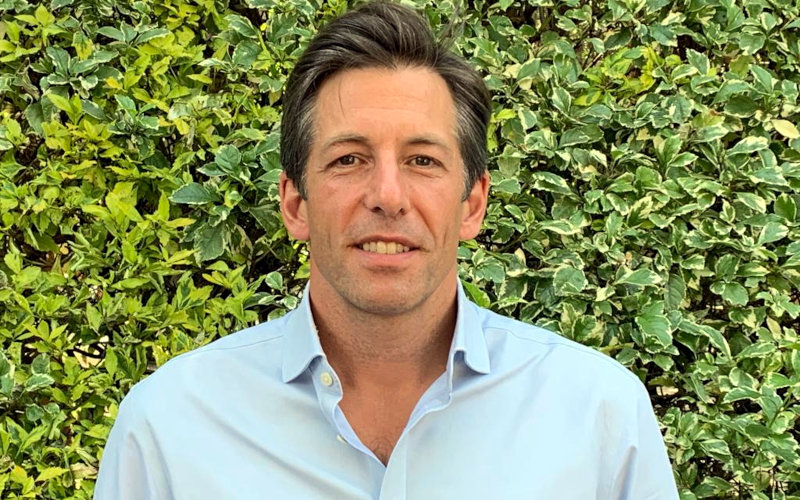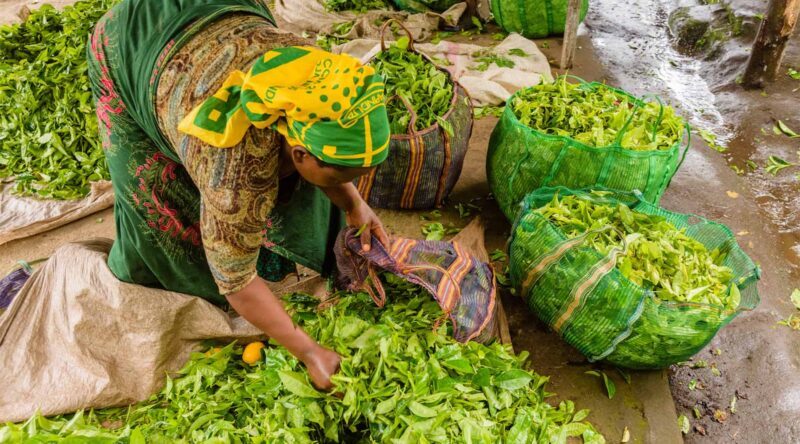
Maris Ltd. is an investment holding company with a diversified portfolio across five sectors in nine African countries. Betsy G. Henderson speaks with Charlie Tryon, CEO and co-founder of Maris, about investment opportunities in sub-Saharan Africa and doing business in frontier markets such as Zimbabwe and South Sudan.
_______________________________________
Corporate Africa | Corporate Africa News
Agriculture is a key investment sector for Maris, through its subsidiary company Agris. From an investment perspective, which agribusiness sub-sectors in Africa offer the best opportunities?
We have two primary areas of focus in the agri sector: agricultural production and what we call agri services. On the production side, we see good opportunities in the high-tech or more intensive end of the primary production agriculture spectrum – i.e., floriculture, horticulture and plantation crops – with a particular interest in higher-margin crops for global export.
On the agri support and services side, we see increasing opportunities in East Africa, particularly in Kenya, Uganda and northern Tanzania. We’re looking at a few acquisitions to provide services (input supplies, technical services, etc.) to the horticulture sector in Kenya; it’s a big sector and so we see a consolidation opportunity amongst the smaller agri-service elements there.
Agris is a holding company for our diverse agricultural and forestry interests, and was established in March this year. Overall, our philosophy to investing in agriculture is to take a more scientific and perhaps financial investor approach; to us, the idea of large-scale, rain-fed, outdoor agriculture is a risky investment proposition. When we invest in production, we seek to minimise or remove some of the inherent risks one faces in agriculture through using available technologies – for example, keeping crops in a greenhouse or controlled environment, using irrigation, or working with the best crop genetics.
Are there any African agribusiness sub-sectors in which you are hesitant to invest?
Forestry is a complex investment piece in Africa, even though it is an area in which we have invested. Forestry involves very long-term time horizons, significant scale, and faces the ever-present challenge of logistics and the high cost of doing business. It’s extremely costly to move things by road in Africa and the distances are huge, so we’ve found it’s difficult to build viable, commercial forestry enterprises unless they are well situated and relatively close to large markets.
In general, forestry is not an easy sector and you have to be very precise in terms of what tree species you’re willing to invest in, where you sit in the value curve, and whether you can add value to the crop. Land issues are also a consistent challenge for forestry in Africa. Environmental sustainability is essential for the viability of the business, as well as the urgent global fight against climate change. This requires careful long-term management.
In terms of overall agribusiness, we’re not keen on lower-value commercial row crops, such as rice, wheat and maize. They have to be produced on a huge scale to be commercially interesting, which is very challenging. The high cost of transport, unstable markets, government intervention, and land use issues are further deterrents, as you need thousands of hectares of land. It is a very difficult business model to get right.
However, if one is looking for cereal crop opportunities, Zimbabwe is perhaps an exception to the rule. There is a large amount of uncultivated land in Zimbabwe, and while there are some serious land issues, if you can overcome them the country has excellent large-scale arable landholdings, along with the skills and the infrastructure needed to support intensive agriculture, which you don’t see in many other African countries.

Corporate Africa | Corporate Africa News
Small farm holders bagging tea in Kenya
Describe some of the agribusiness trends you see in sub-Saharan Africa?
For one, I think you’re seeing more consolidation in the horticulture and floriculture sectors in East Africa. Some of the big players (such as Vegpro, the Kariki group or Black Tulip in Kenya) are getting bigger, and smaller farms (25 hectares or less) are starting to disappear. Companies which are both horticulturists and floriculturists, like Vegpro in Kenya, seem to have particular dominance; they’ve built an increasingly vertically integrated business that goes from the field to the consumer, plus they have their own marketing and distribution networks in Europe, so they’re capturing more of the value chain. The industry seems to be headed in this direction, but as most people can’t afford to build a business of that scale, I think there’ll be more acquisitions in the future.
In terms of specific crops, avocados are still the trendy crop, alongside macadamias. Despite being hailed as “green gold”, I believe there are challenges ahead in Africa’s avocado sector. Avocado demand is growing (particularly from Europe and the US), but you’re also seeing very large-scale, professional, and high-tech avocado cultivation in South America, South Africa, and elsewhere around the world.
Avocado developments in South Africa have been pretty considerable over the past five to 10 years, and in South America, countries such as Peru, Chile, Colombia and Argentina have lower-cost operating environments and are now posing competition in the market. Plus, as overseas consumers become increasing discerning on the size, quality, colour and texture of avocados, it will become harder for small-scale African farmers to deliver. Avocado production in Africa will need to centre on scale, efficiency, and quality, and I’m not sure if in five years smallholders producing avocados in a semi-subsistence way will have a place in the export market.
Kenya’s Evergreen Herbs, a Maris portfolio company
Maris has investments in South Sudan and Zimbabwe, countries which some investors may view as risky investment environments. What is it like to do business there?
We invested over a decade ago in South Sudan when the country was at the beginning of an exciting journey towards independence. As a pre-independence investor, we saw the country go through terrific growth; at the time, they had good oil production, the price of oil was high, and there was overall a real feeling of rebirth and prosperity. Since independence in 2011, however, there’s been a very sad decline into civil war, corruption, and poor governance, and the result is South Sudan has become a place I think very few investors would be willing to consider.
That said, South Sudan offers very select opportunities for investors who are looking to make a huge impact – investing there involves a lot of hard work, risk and resilience. The only area where we can see a reasonable risk-return profile is in the forestry sector. We’ve invested in tropical hardwoods and teak plantations there; teak takes 25 years to grow, so if the country is unstable for five years, we can manage our tree crop accordingly. The trees keep growing and don’t spoil, and when the situation on the ground improves, we’ll still be in a position to harvest. With high rainfall, good soils, very good temperatures, and a lot of space, South Sudan offers a perfect climate and a good opportunity for growing plantation teak. In South Sudan we are the largest regional employer and with that comes a huge responsibility. We are diversifying into other high-value crops such as coffee to create jobs while the current teak matures.
In Zimbabwe, we’re invested in gold mining, and I think Zimbabwe offers one of the best global opportunities in the gold mining sector. Political and economic risks are very real there, good governance is a key challenge, and we’ve seen a lot of currency instability and heavily restricted flow of forex, which is not ideal for foreign investment. The country is very isolated from the international community at the moment, and while we’ve looked at agricultural opportunities there, mining is the only sector we’re comfortable investing in right now.
Zimbabwe is also fantastically well-endowed with minerals and natural resources, has a wonderful climate, and good water resources, dams, and soils. I think one of Zimbabwe’s greatest assets is its human capital – it has some of the most well-skilled, well-educated, and hard-working people I’ve ever met. We employ Zimbabweans across a wide range of our business across Africa, and I cannot speak highly enough of their capabilities.
In addition to agribusiness, in which other sectors do you see opportunities?
The world is facing an unprecedented challenge due to the coronavirus pandemic, and while Africa has been relatively unscathed – perhaps with the exception of South Africa – there has been a general contraction in economic growth across all of the markets we’re working in and it’s very difficult to invest at the moment.
If one is looking with a medium-term view beyond the agriculture sector, however, there are great opportunities in the real estate space. We invest in industrial warehousing, and I think the growth of e-commerce – another interesting investment sector to look at in Africa – interplays well with these investments. I anticipate there will be fairly substantial growth in online retailing, with a progression from routine retail towards either big-box retail or ecommerce and distribution platforms (like Amazon) on the continent in the years ahead. It’s only a matter of time.
There are also great opportunities in the infrastructure space; Africa is still urbanising, and populations are still growing at a dramatic rate, so infrastructure is always a necessity. Renewable energy is another space where we’re invested and have seen a lot of growth even throughout the coronavirus pandemic.
While one must be more discerning than 10 or 15 years ago, there are also good prospects in the banking and financial services sector. There’s still a huge unbanked population in Africa and high demand for capital, so financial services can be a good opportunity as long as you are careful where and how to invest.
The FMCG side is also an interesting sector, and although not one we cover, it’s certainly one that is seeing growth. That said, you do need to look at sub-sectors within a broader sector if you want to invest with the right returns.
Lastly, natural resources is obviously a sector that has always been of interest in Africa, and that continues today. There are a lot of challenges in mining, but still a number of opportunities.
Which African country are you most optimistic about?
Of the markets in which we work, the easiest place to do business is Rwanda. However, the market there is small, and so the opportunity is somewhat limited.
In terms of potential, we are most excited about Mozambique. We have been investing there since 2011, and Mozambique is on the brink of very large-scale gas development in the north of the country. There’s a huge amount of capital – upwards of $30 billion – coming in to develop these gas resources. Of course, there are problems that can be associated with a single natural resource and the wealth it generates – such as the Dutch disease – but I think this is a very positive long-term step for Mozambique. Assuming they can bring the insurgency in the north under control, I think growth in the next decade should average double-digits and Mozambique will see the highest rates of growth in Africa over the next 10 to 15 years, albeit from a low base.
Name your most successful investment to date ?
We invested in a disused gold mine in Kenya in 2009, which had been abandoned in 1963 at the time of Kenya’s independence. We came in and rehabilitated the mine with our partner, and over the following 10 years built a business that employed 400 people, paid $15 million in taxes to the Kenyan government, and became the largest gold producer in Kenya. The business currently faces political challenges but was overall a successful and impactful investment.
Describe some of the investment lessons you have learnt over the years?
Investors should not view Africa holistically. The continent is made up of 54 countries, thousands of languages and different people who think in different ways, and you have to take a very individualistic approach to every opportunity, and really think about all the risks and how they work. You cannot take a cookie-cutter approach to Africa – something that works in one country will not necessarily work in another. There’s a lot of local idiosyncrasies that you have to understand, and in general, sub-Saharan Africa is not an easy place to invest.
Some of the biggest challenges you face as an investor include governments and good governance; corruption is a constant and ever-present challenge across the continent. I think the cost of doing business is generally higher than it should be, due to factors such as poor infrastructure, lack of good quality roads and rail, and the high cost of air travel.
Human capital is also a challenge; it’s often quite hard to find really good local talent, and expensive when you do find it. We’ve found it is very difficult to bring talent from one country to another in Africa, and there are tremendously bureaucratic systems that prevent cross-border work or hiring specialists from overseas.
Governance within companies across Africa is generally weaker, and we’ve found you have to be intimately involved in your investments. In other words, the more traditional ways of operating as an equity investor do not apply in Africa. You have to be far more operationally engaged in your businesses, and we’ve found it prudent to have a controlling interest in almost everything we invest in order to mitigate risks.
Things in Africa also take a long time, so you need patient capital; I would recommend taking a 10 to 15-year time horizon when investing in Africa, particularly considering how challenging it can be to achieve exits. A lot of private equity investors have struggled to achieve exits in the time period of their funds. For this reason, we felt being a permanent capital vehicle – which Maris became in 2014 – was a smarter structure for the environment in which we work.
One of the specific challenges that we’ve faced and overcome with relative success has been the forex risk. There are many risks in Africa, but forex is the biggest one we’ve encountered across the continent. It’s very difficult if you’re a foreign investor to make money in a falling currency market. We have designed and built a portfolio of businesses that mitigates that risk; 90% of the revenues across our business are either pegged to the US dollar or are in US dollars. This is not an accident, and we’ve learned you have to be extremely careful of being caught on the wrong side of African currencies.
Another lesson we’ve learnt is that the political cycle in Africa has a huge impact on local and regional economics. When there are national elections every four or five years, African countries tend to grind to a halt for six to 12 months on either side of the election. This significantly impacts the performance of companies in those markets, so you have to weigh up these macro, micro, and political cycles in Africa, and then work within those variations when you’re investing.
However, when you look at all the complications in the world today, Africa is well-positioned, if you take a long-term view.


Superdry men’s Germany Trophy Series t-shirt.
This is a good article